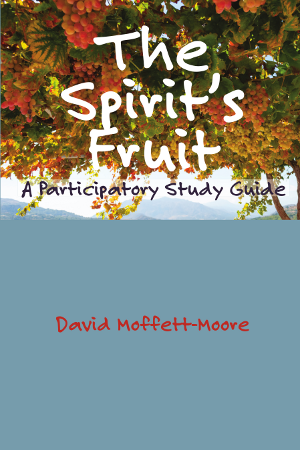Because I Would Keep Right on Praying
That’s obviously the answer to some question, but what question is it an answer to?
Well, I’m frequently asked by fellow-Christians why I would pray if I don’t believe that God will do what I ask. I’m also frequently asked by others why I would bother to pray if there is no evidence that prayer works. It could also be an answer to the frequent question of why I’m not at all interested in the results of studies on the effectiveness of prayer.
I wrote on this from a more scriptural point of view in my essay Praying, Being Heard, and Not Getting It. Here I just want to give a few personal reflections.
It starts with the reason I pray in the first place. I pray, because I can commune with God. Those who don’t believe in God are welcome to fill in some kind of meditation, communion with my subconscious, or whatever you want. What I believe is that I commune with God. Now what is this communion with God? Is it something that can be tested? Just what scientific test would one propose to determine how effective one’s prayers are at communing with God?
Designing a prayer study depends on determining just what it is that is going to happen when somebody prays. I see no theoretical reason one can’t test such things, provided one can find something to predict. For example, are people more likely to be healed when people pray for them or not? It seems a simple question. Of course, you can’t weed out factors like how many people might be praying for certain patients in the study even though they know nothing of the study. Thus statistically, Mary might be in the control group for which nobody in the study is praying, but she might elicit numbers of prayers in some other way. Nonetheless, it would seem to me such a study would work generally, always provided that the prediction was in fact the right thing to test.
But when I pray, I expect to communicate with God, but I expect God to continue to do things his way anyhow. I don’t see God as a slot machine in the sky. Some scriptures certainly suggest the idea that he is, but others tend the other way. I think this reflects our own experience. Sometimes things happen as we’d like; sometimes they don’t.
My personal test on this came with the death of my 17 year old son in 2004, less than a week after Hurricane Ivan passed through. In the prayer order of things, I would have taken the life of my son over anything else I might ask God for. Yet my double-wide trailer was spared, despite being in an area of substantial destruction, and my son died. There was nary a leak in the trailer. There was not a moment of respite on my son. Travel plans for guests at the funeral were chaotic due to the cleanup from the storm.
Did God answer my prayer on my home, but deny the prayer on my son? I couldn’t answer precisely how God works in these things. I can simply note that my son’s cancer ran the course that might be expected of that type of cancer, and that damaged areas were scattered, as they often are in a hurricane. Did I consider cutting off my prayer? “God,” I could say, “This prayer machine isn’t working. I put in several sacks of quarters into the ‘heal my son’ slot, and a quarter or two into the ‘save my home’ slot, and you skipped the healing and handled the home.”
Many people, I know, have quit praying under that sort of circumstances. Many people will think either that I had insufficient faith–if I’d had enough what I wanted would have happened. Others will think I’m a stupid man because I continue to pray when prayer clearly doesn’t work. (Go ahead, admit you think I’m stupid on this point, even if you’re gracious enough to give me points in other areas.)
The bottom line, however, is that I didn’t pray so that certain things would happen and others wouldn’t. I prayed because I could. I prayer, as C. S. Lewis once noted, because I couldn’t help it. But even more I pray because I enjoy praying. It’s an important part of my life. I don’t think it gives me a handle on God, or a way to force God to do things my way. It does give me exceptional opportunities, I believe, to reshape my life according to the way God wants it to be. And that is why I will keep right on praying no matter what the studies show. They aren’t designed to discover anything I want or need to know.
I was kind of set off on this topic by the story of Ante Pavkovic, who said that he was trying to “avert the wrath of God on the nation” when he protested Hindu prayer in the Senate (source ; HT: Dispatches). I’m not sure precisely how being discourteous in the Senate gallery will avert God’s wrath, but it sounds to me as though Pavkovic thinks God is hard of hearing and will perhaps miss the nasty Hindu prayer while hearing the Christian ones from the gallery. Or perhaps he thinks God is too dumb to figure out what to do about America, and needs our guidance. It would be much more useful to stay at home and earnestly ask God to guide him into an effective means of witness.
All this rhetoric about averting God’s wrath on the nation has a subtle foundation in the notion that America has become God’s chosen nation. In the times of ancient Israel nations in general were seen as belonging to their various gods. Israel was YHWH’s country, and he blessed or cursed Israel according to their obedience or disobedience. The idea of a pluralistic society simply didn’t exist. Most people who pray for the nation are not Christian dominionists, but they do take the promises God made to Israel and apply them to the United States without serious consideration of the context.
All of which leads them back to the “prayer receiving machine in the sky” which will give the right people what they want if they pray often and loudly enough. I really enjoyed the seen in Bruce Almighty in which Bruce sets the computer to answer everyone’s prayer “yes.” The resulting chaos is quite amusing. But the comedy has a wonderful point. It doesn’t work that way. It couldn’t work that way.
I suggest those who study prayer seriously consider whether there’s anything to study. Just as I don’t like intelligent design, because I think it’s an effort, however disguised, to make God subject to scientific study, so I don’t think prayer can be studied. If you want to get stuff, feed your money into a vending machine. If you want to get closer to God, pray.
PS: For those interested, I have three prior essays that are relevant to this issue: The Hand of God, The Hand of God: Miracles, and The Hand of God: Prayer. These three essays are also edited and incorporated into my book Not Ashamed of the Gospel: Confessions of a Liberal Charismatic.


We don’t usually consider the value of conversation with our loved ones to be based on the favors we can get from them, but there seems to be always a temptation to see prayer mostly as a way to get God to do things for us. I appreciate your reminder here of the much larger value that prayer can have.
You’re not stupid. 🙂
When my husband died, I had a bad period of doubt in God and in the efficacy of prayer. I just didn’t understand that He wasn’t, as you say, a “slot machine in the sky.” I was angry about being pregnant, unemployed and widowed, and couldn’t reconcile how a God that allegedly loved me could permit it to happen.
It took me a while to understand that Romans 8:28 applies to my life ALL the time, not just in circumstances that make me comfortable.
I’ve seen some of the “prayer studies ” as well (usually quoted by my atheist friends) and I agree that they entirely miss the point. It’s tempting to be sucked into the slot-machine mode and forget that communication is the main focus.
Thanks, Henry, great stuff. I wouldn’t expect God to cooperate with any kind of statistical study of prayer anyway, as he doesn’t think much of people who try to test him by demanding signs. We shouldn’t look for signs, but for relationships.
Nice article.
I agree that prayer is not about asking for things and all about communion. I believe that there are many ways to accomplish this and prayer is one of those.
As a Deist, I do not believe that God has a hands on approach to our individual lives but rather gives humanity gifts such as reason, love, compassion and grace. God desires us to use these gifts to make a better world for ourselves and others.
So, the idea that one can pray to God to change something is foreign to me but praying to God for thanks and connection is not. While I don’t use prayer as often as I should, I do believe that it is an important tool in our connection and experience of God.
Thank you so much for this post. I think about this a lot, but haven’t been able to draw my thoughts together very articulately. It was very good, then, to read your expression. I look forward to reading some of the other things you have written on the topic.